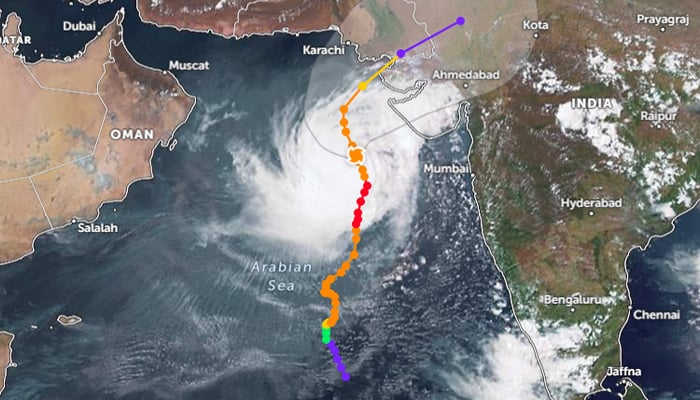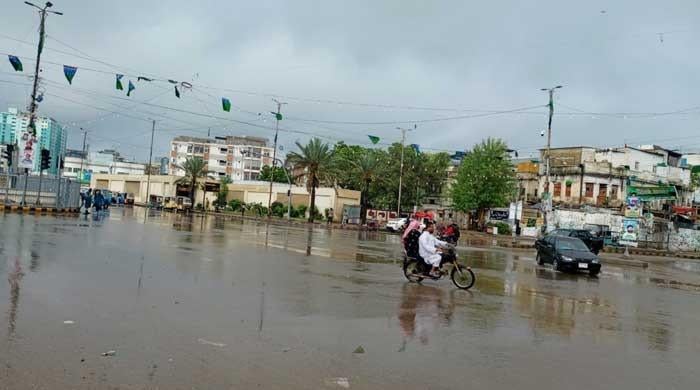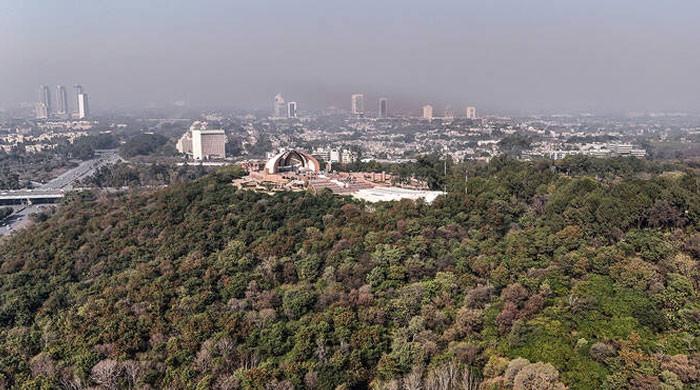Karachi likely to receive up to 100mm rainfall as cyclone Biparjoy inches closer
Rainfall and strong winds are expected to commence tomorrow in Karachi, Hyderabad, Thatta, and Mirpurkhas
June 12, 2023

A storm surge in the Arabian Sea will bring heavy rainfall to Thatta, Sajawal, and Badin, with expected amounts ranging from 300mm to 400mm, while Karachi may experience up to 100mm of rain, the Pakistan Meteorological Department (PMD) said on Monday.
The cyclone is projected to pass between Keti Bandar and Indian state Gujarat on June 15, resulting in waves measuring 10 to 12 feet and gusts of up to 120 kilometres per hour at the Pakistani seaport.
Rainfall and strong winds are expected to commence tomorrow (Tuesday) in Karachi, Hyderabad, Thatta, and Mirpurkhas.
In Karachi, billboards have not yet been removed from the buildings. Meanwhile, In view of the storm, the Seaview road was closed, with access to the beach prohibited from a local restaurant to Khayaban-e-Ittihad.
Mercury in Karachi to reach 41°C
With the cyclone inching closer to Karachi, mercury is likely to rise to 41°C. Biparjoy is at least 550km south of Karachi, and under its influence, the weather is likely to remain humid and hot in the port city, where the mercury touched 34°C this morning.
The Met Office has, meanwhile, forecast that the maximum temperature today is likely to be 39°C to 41°C, which may touch 45°C, with a minimum temperature of 30°C.
In Karachi, the wind speed is 18km per hour from the southeast direction, with a humidity ratio of 41%.
According to the PMD, the cyclone has been moving northwards for the past 12 hours, which is 530km south of Thatta. By June 14, the cyclone will move northwards, while on the afternoon of June 15, it will cross southeast Sindh and Indian Gujarat.
According to Sindh Chief Meteorologist Sardar Sarfaraz, the intensity of the storm is increasing due to climate change. However, it will take three to four days for it to subside once it hits the region.











